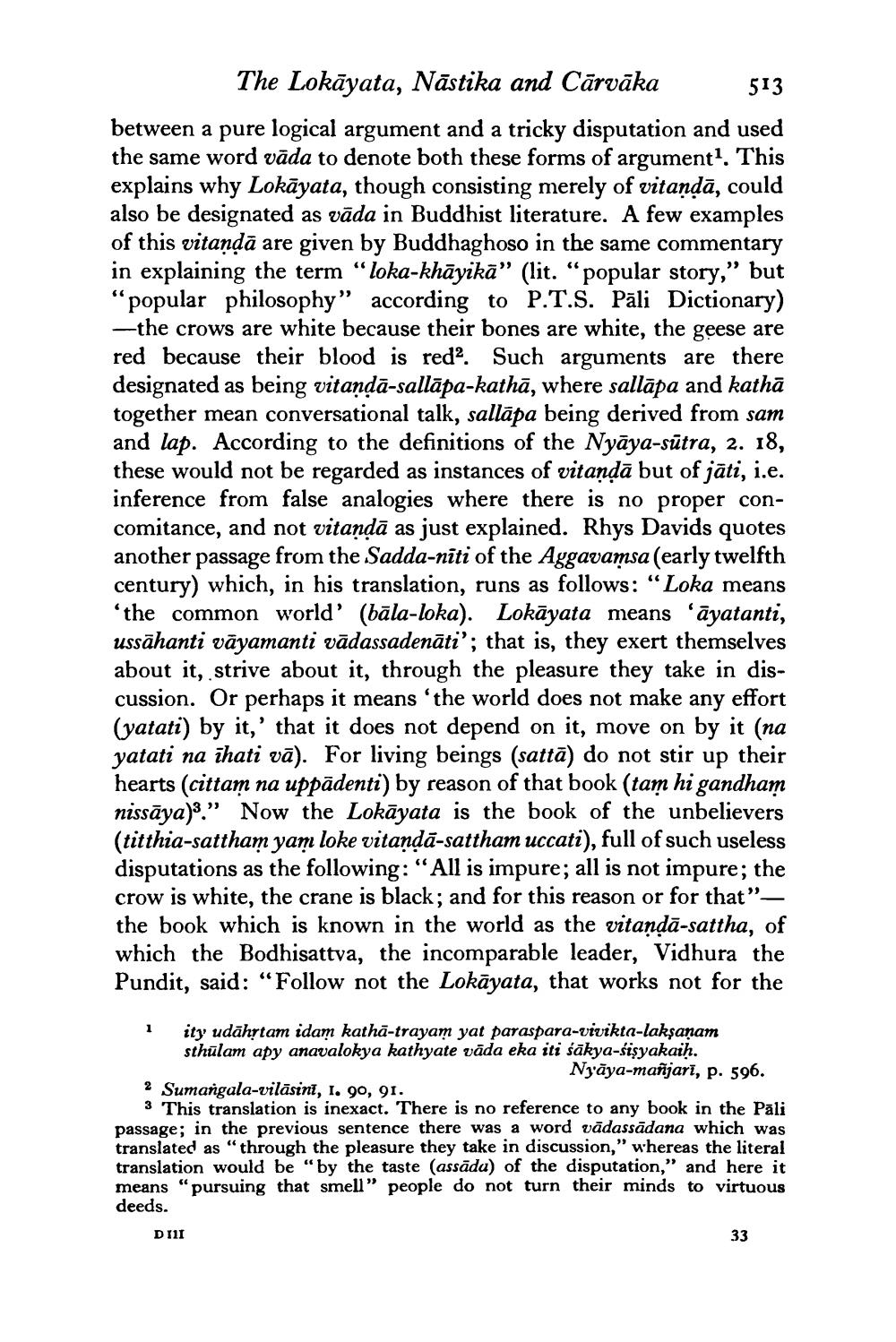________________
The Lokāyata, Nāstika and Cārvāka
513
between a pure logical argument and a tricky disputation and used the same word vāda to denote both these forms of argument1. This explains why Lokāyata, though consisting merely of vitanda, could also be designated as vāda in Buddhist literature. A few examples of this vitanda are given by Buddhaghoso in the same commentary in explaining the term "loka-khāyikā" (lit. "popular story," but "popular philosophy" according to P.T.S. Pāli Dictionary) -the crows are white because their bones are white, the geese are red because their blood is red2. Such arguments are there designated as being vitaṇḍā-sallāpa-kathā, where sallāpa and kathā together mean conversational talk, sallāpa being derived from sam and lap. According to the definitions of the Nyāya-sūtra, 2. 18, these would not be regarded as instances of vitaṇḍā but of jāti, i.e. inference from false analogies where there is no proper concomitance, and not vitaṇḍā as just explained. Rhys Davids quotes another passage from the Sadda-niti of the Aggavamsa (early twelfth century) which, in his translation, runs as follows: "Loka means 'the common world' (bāla-loka). Lokāyata means 'ayatanti, ussähanti vāyamanti vādassadenāti'; that is, they exert themselves about it, strive about it, through the pleasure they take in discussion. Or perhaps it means 'the world does not make any effort (yatati) by it,' that it does not depend on it, move on by it (na yatati na ihati vā). For living beings (satta) do not stir up their hearts (cittam na uppādenti) by reason of that book (tam hi gandham nissāya)3." Now the Lokayata is the book of the unbelievers (titthia-sattham yam loke vitanda-sattham uccati), full of such useless disputations as the following: "All is impure; all is not impure; the crow is white, the crane is black; and for this reason or for that"— the book which is known in the world as the vitaṇḍā-sattha, of which the Bodhisattva, the incomparable leader, Vidhura the Pundit, said: "Follow not the Lokāyata, that works not for the
1 ity udahṛtam idam katha-trayam yat paraspara-vivikta-lakṣaṇam sthulam apy anavalokya kathyate vāda eka iti śākya-siṣyakaiḥ.
Nyaya-mañjarī, p. 596.
2 Sumangala-vilasini, I. 90, 91.
3 This translation is inexact. There is no reference to any book in the Pāli passage; in the previous sentence there was a word vadassādana which was translated as "through the pleasure they take in discussion," whereas the literal translation would be "by the taste (assāda) of the disputation," and here it means "pursuing that smell" people do not turn their minds to virtuous deeds.
DIII
33




